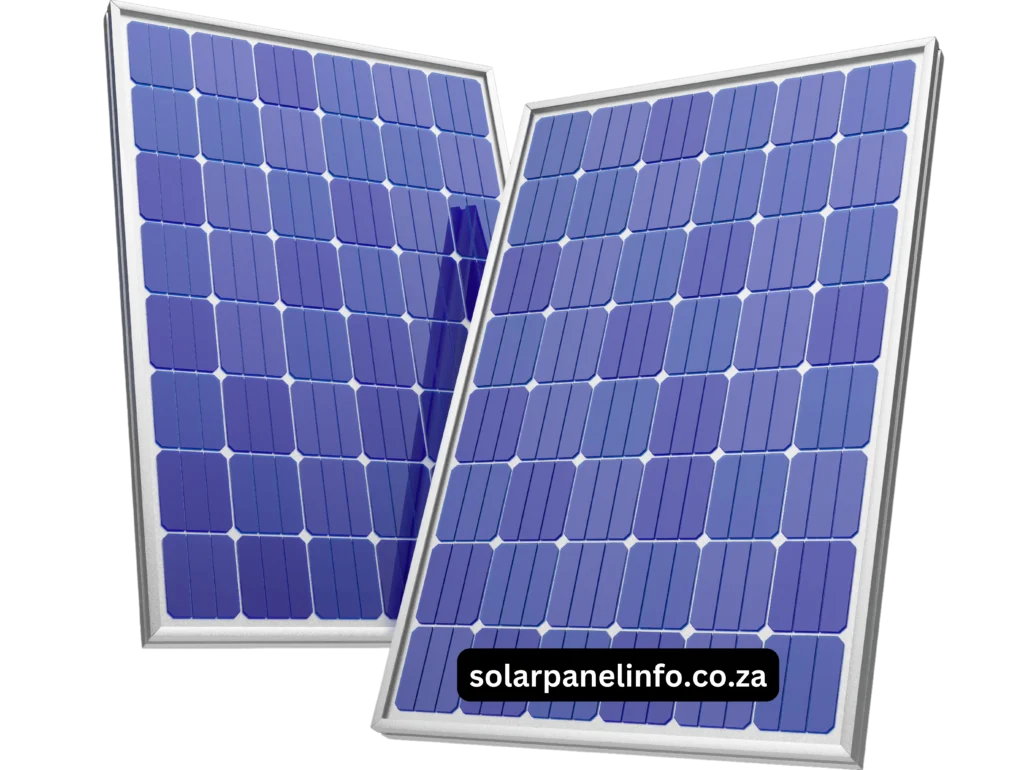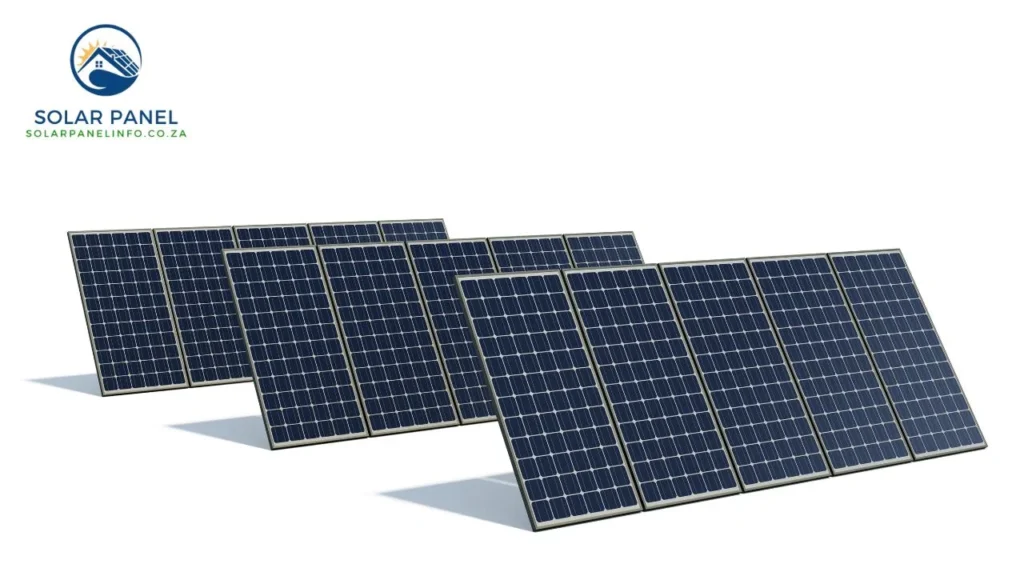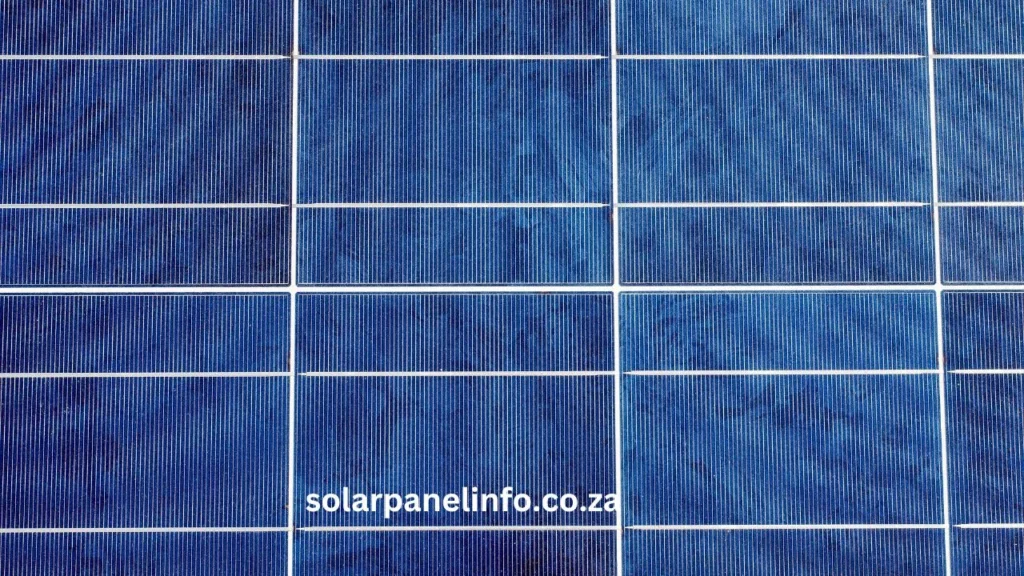Solar Panel Prices in South Africa
The price of solar panels in South Africa varies depending on the system and individual panels. Here is the general cost.
A 360-watt solar panel costs R1800, and a 550-watt solar panel costs R4200. A 3kW solar panel system in South Africa may cost between R45,000 and R70,000, and a 5kW system between R70,000 and R110,000.
Solar Panels in South Africa
South Africa’s solar business has expanded greatly in recent years as a result of some causes, including growing electricity prices, worries about the environment, and backing from the government. A solar panel is an apparatus that uses photovoltaic, or PV, cells to convert sunlight into electrical power. The components of a photovoltaic cell generate excited electrons when exposed to light. The electrons move through a circuit to create direct flow (DC) power, which can be stored in batteries or utilized to power other devices. The other names for sunlight-powered chargers include photovoltaic modules, solar-powered cell boards, and sun-oriented electric boards. Solar chargers are usually mounted in groups or structures. A photovoltaic framework consists of a minimum of one charger that runs on sunshine, an inverter that converts direct current (DC) to alternating current (AC), and a variety of elements that are periodically added, such as meters, trackers, officials, etc. Most boards are housed in solar-powered ranches that power the network, much like some housetop solar-powered ones.

Benefits of Boards in the Sun
Because of their many focus points, solar panels are a popular option in South Africa for both individuals and companies. Sun-powered boards reduce reliance on fossil fuels and harmful pollutants while harnessing the sun’s energy to provide clean, renewable energy.
Cost savings: Investing in solar panels can protect you against potential increases in energy costs and help you save a significant amount of money on your electricity bills over time.
Energy freedom: With solar panels, people and communities can have more control over how much energy they use and how much it costs, making them less submissive to the national grid.
To power my house, how many solar panels do I need?
The quantity of solar panels needed to power your home depends on the following factors:
Energy Consumption: To calculate your average daily energy consumption, divide your total yearly use of energy by 365 days.
Panel Size: The size of the solar panels affects how many are required as well.
Board Effectiveness: The quantity you desire is also influenced by the solar chargers’ productivity.
Area: The quantity you desire is also influenced by where you need to install the solar chargers.
For example, assuming your normal day-to-day energy utilization is 34 units, you want around 9kW near the planet group. This is because a system of 1-kilowatt solar panels produces approximately 4 units per day on average. As a result, you would require 9,000 watts or 9 kilowatts. If you are utilizing 590-watt sunlight-based chargers, you would require 9,000/590 = 15.25 sunlight-powered chargers. Up to 16 can be rounded up.
The Growing Demand for Solar Panels
In South Africa, the demand for solar panels is rising due to many factors. Concerns about the environment are growing as more individuals look for greener ways to cut back on their carbon footprint. A renewable energy option that can dramatically reduce greenhouse gas emissions is provided by solar panels.
Energy independence is another critical factor. Energy autonomy is an additional crucial element. By using solar panels, companies and households can produce their electricity and become less dependent on the national grid.
Financial incentives also play a crucial role. Government rebates, tax incentives, and falling prices of solar technology make solar panels more affordable and attractive to a broader audience.
Types of Solar Panels in South Africa
When buying solar panels in South Africa make sure there are different types of solar panels available in South Africa.
Monocrystalline Solar Panels: Known for their high efficiency and sleek appearance, these panels are made from a single crystal structure. They are more expensive but offer better performance in limited space.

Polycrystalline Solar Panels: Made from multiple silicon crystals, these panels are less efficient but more affordable than monocrystalline panels. They are a popular choice for residential installations.

Thin-Film Solar Panels: These are lightweight and flexible, making them suitable for diverse applications. However, they are generally less efficient and require more space than crystalline panels.

Government Policies and Incentives
The South African government offers several incentives to encourage solar adoption:
Tax Rebates and Subsidies: Homeowners can receive tax deductions for solar installations, reducing the net cost.
Net Metering and Feed-in Tariffs: Programs that allow homeowners to sell excess energy back to the grid, offsetting costs.
Future Government Plans: Ongoing initiatives aim to further support renewable energy adoption, promising more incentives and streamlined processes.
Choosing the Right Solar Panel for Your Needs
Selecting the right solar panel involves assessing your specific needs:
- Assessing Your Energy Consumption: Analyze your electricity usage to determine the system size required.
- Space and Location Considerations: Ensure your roof or installation site receives adequate sunlight and has enough space for the panels.
- Longevity and Warranty: Consider panels with longer warranties and proven durability for a better return on investment.
The Installation Process
The installation process involves several steps:
Finding a Certified Installer: Ensure the installer is certified and has experience with solar installations.
Steps in the Installation Process: From site assessment to connecting to the grid, understanding each step helps manage expectations.
Post-Installation Maintenance: Regular cleaning and occasional check-ups ensure optimal performance.
Conclusion
Solar energy presents a promising solution to South Africa’s energy challenges. While the initial investment can be substantial, the long-term benefits, including cost savings, environmental impact, and energy independence, make it a worthy consideration. As technology advances and government support increases, solar panels are becoming an increasingly viable option for South Africa.
